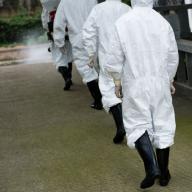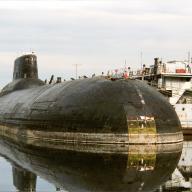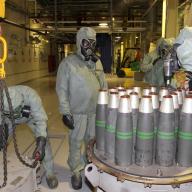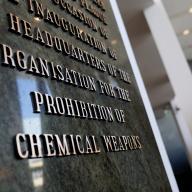Related commentary: Chemical and biological weapons
The states parties to the Biological and Toxin Weapons Convention (BWC) are gathering in Geneva from 29 July to 8 August for a series of Meetings of Experts. Among other topics, states are reviewing scientific and technological developments that impact the objectives of the treaty.
The French initiative is a commendable effort to hold facilitators and supporters of CW use in Syria legally accountable and thereby to help ensure that the CWC norms are not fundamentally undermined through inaction or neglect.
The announcement that Russia had completed the destruction of its chemical weapons stockpile was rightly applauded as a milestone in multilateral arms control. However, it was also a reminder of the significant part that international non-proliferation and disarmament assistance played in facilitating the implementation of the 1993 Chemical Weapons Convention (CWC).
On Wednesday the Director-General of the Organisation for the Prohibition of Chemical Weapons (OPCW), Ambassador Ahmet Üzümcü of Turkey, congratulated Russia on completing the destruction of its chemical weapons stockpile which originally totalled 39 967 agent tonnes (i.e. excluding munition weight).
The G20 Summit will be held in Hamburg on 7–8 July 2017. The UN Security Council and OPCW member states remain unable to agree Syrian Government responsibility for any of the continued instances of chemical warfare.
The first case of Ebola outside of West Africa was confirmed in Dallas, Texas, which may be the tipping point for properly mobilizing the international community to act.
The escalation of the current conflict in Syria gives greater impetus to efforts to determine the fate of Syria's weapon programmes and, in particular, its reported stocks of chemical weapons.
A number of recent incidents have reinforced renewed concern regarding states' use of so-called riot control agents (RCAs)⎯particularly tear gases and pepper spray⎯against civilians. The legitimacy of RCAs as a means to maintain and restore public order is based on two assumptions: first, that they do no long-term harm to their targets, and second, that they are used responsibly and appropriately.
The 1972 Biological and Toxin Weapons Convention (BTWC) is one of the most widely ratified multilateral treaties concerning armed conflict since the Geneva Conventions. Its core principle has not been challenged: no country argues that the use of biological weapons is legitimate. Nevertheless, advances in science and technology are changing the very nature of ‘biological agents’ and the ways in which they can be produced and manipulated. As the BTWC approaches 40, is it still up to its primary task of preventing biological warfare?




